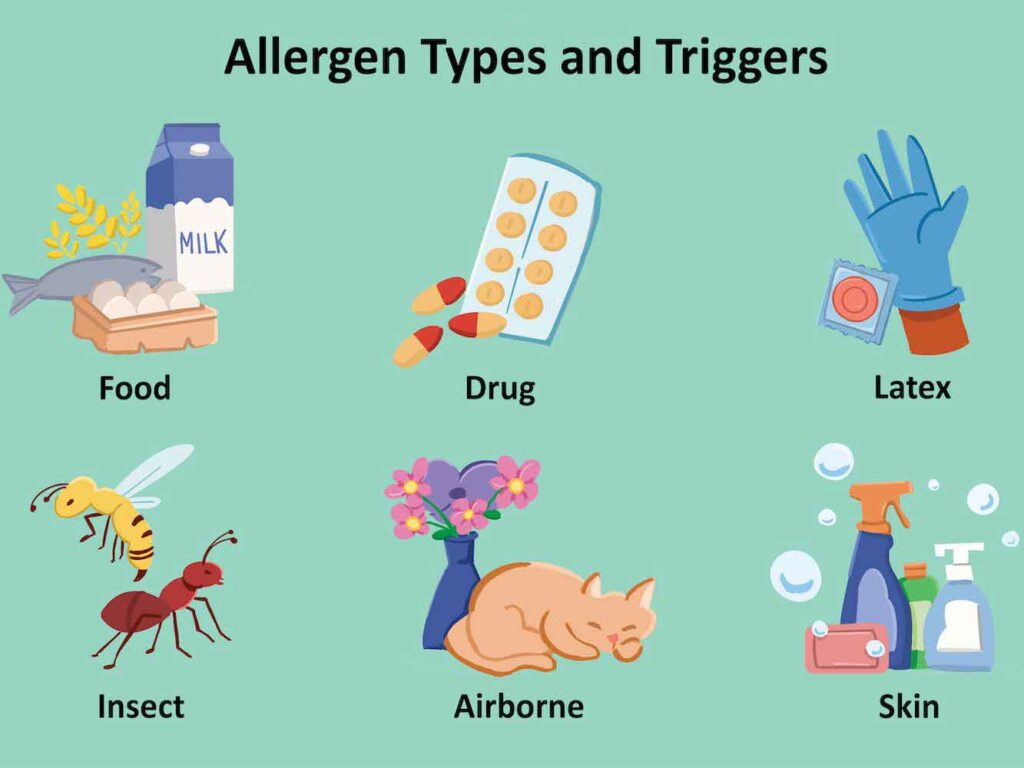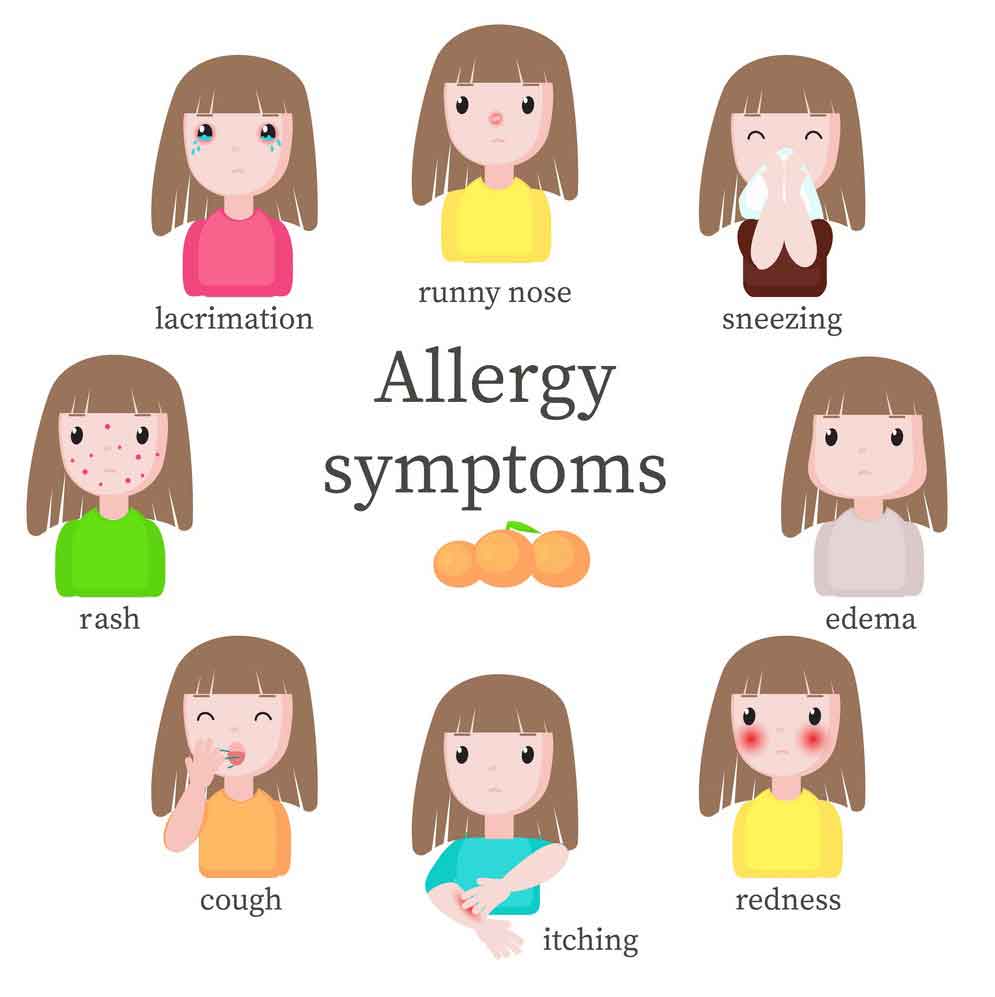Each time you stroll on your terrace, you begin sneezing, sniffling, and feeling like you need to return indoors. It’s springtime – birds are singing, blossoms are sprouting and you can’t quit sneezing. You’re almost certain you have an allergy. However, what are you sensitive to? The best way to be aware without a doubt of what’s compelling you to wheeze is to have allergy tests at your primary care physician’s office. We should discuss allergy testing. Your primary care physician might do at least one of a few unique kinds of allergy tests to see what’s causing your sensitivities.
Texas Speciality Clinics – Urgent care offers treatment, testing, or potential diagnosis of non-life-threatening hypersensitive responses or side effects. An allergy is an eruption of the immune framework to an improper stimulus, like residue, dust, grass, pet dander, form, and so forth. The immune framework accepts a parasite is attacking it as opposed to a harmless allergen in the environment, and consequently, it revitalizes its protections to fight the enemy.

Who Should Get Allergy Test?
Kids and adults are intrigued by allergy testing and allergy immunotherapy as a method for treating and significantly reducing allergy side effects.
Texas Speciality Clinic offers same-day consultation, testing, and treatment for various kinds of allergies, including :
- Seasonal and environmental allergies include common indoor and outdoor allergens such as tree and grass pollens, mold, dust, and pets.
- Food allergies.
- Medication allergies, including penicillin.
- Asthma.
- Eczema.
What Are Allergies?
Allergies begin when your immune system botches an ordinary, regular substance for a hazardous intruder in your body. Your system answers by going after the intruder, or allergen. The body will deliver histamines, which make allergy side effects. Allergies can go from mild to severe and can create minor irritation or result in anaphylactic shock, a life-threatening condition.
People are allergic to a variety of substances, but there are some common triggers :
- Airborne : Pollen, animal dander, dust mites, and mold.
- Insect : Bee stings.
- Medicine : Most commonly seen with penicillin and penicillin-based antibiotics.
- Skin : Latex is a common skin allergen.
- Food : Eggs, fish, milk, peanuts, shellfish, soy, tree nuts, and wheat.

Why Do You Need The Allergy Test?
Effective allergy treatment begins with detecting the allergens that cause your immune system to go into overdrive. Allergy testing is the answer to all your unexplained sneezing or wheezing and can also rate the level of your reaction to specific allergens. It also defines the type of allergy treatment you require.
For example, on the off chance that you have a gentle sensitivity to pollen to tree dust, you might excel on occasional oral antihistamines to control your immune reaction. Nonetheless, people with additional severe allergies might answer better to immunotherapy. At times alluded to as allergy shots, immunotherapy desensitizes your immune system’s reaction to different allergens.
Allergy symptoms vary depending on the severity of the allergic reaction.
Mild Symptoms : The vast majority experience mild allergic symptoms. Assuming they include the sinuses, these symptoms are frequently confused with the normal virus. Symptoms include :
- Sneezing.
- Runny, stuffy nose.
- Itchy, watery eyes.
- Rash or itchy skin.
Severe Symptoms : Severe allergic reactions ought to constantly be treated at the emergency room. A severe reaction – anaphylaxis – is a life-threatening health-related emergency and can make your body go into shock. Symptoms of anaphylaxis incorporate :
- Tingling mouth.
- Swelling of lips, tongue, face, or throat.
- Chest tightness, wheezing, coughing, or shortness of breath.
- Nausea and vomiting.
- Sneezing.
- Runny, stuffy nose.
- Itchy, watery eyes.
- Rashy or itchy skin.

What Are The Types Of Allergy Testing?
Doctors prescribe various Allergy tests based on your symptoms. The allergy tests include :
- Skin Prick Test : During a skin prick test, your supplier pricks an area of skin on your lower arm or upper back with a slight needle that contains a modest quantity of a potential allergen. From 10-50 potential allergens might be remembered for the test. A positive reaction to one of the allergens happens typically in no less than 15 minutes and may cause redness, a raised bump, or a rash at the site. A skin prick test can check for airborne allergies like residue or dust, penicillin allergy, and food allergies.
- Blood Test : Contingent upon the consequences of your skin prick test or thought allergy, your supplier might prescribe a blood test to gauge how much allergy-causing antibodies are in your blood.
- Breathing Test (Spirometry) : Since allergies and asthma frequently happen together, your supplier may likewise prescribe a breathing test to decide if you require further evaluation and treatment for asthma.
- Food Test : This is conducted to confirm a food allergy or to decide whether they might endure a food that they are at present staying away from. Steady dosages of the food are given to the patient beginning with a tiny quantity. Each portion is trailed by a time of perception and evaluation before getting the following portion. In the wake of getting the last portion, the patient goes through an extra perception period and last evaluation. Because of the risk of developing an unfavorable reaction, all food challenges are performed under the doctor’s watch.
- Drug or Medication Test : Incremental doses of the medication are given to the patient beginning with a tiny dose. Each dose is trailed by a time of perception and evaluation before getting the following dose. In the wake of getting the last dose, the patient goes through an extra perception period and last appraisal.
- Patch Test : This is to assess for an underlying trigger in people who develop contact dermatitis. Instances of contact dermatitis are the improvement of a rash after wearing specific metal gems or utilizing particular health or skin management items. The thought specialists are put as patches on the back.
Is An Allergy Test Safe?
Your healthcare provider would monitor your response to allergy testing at Urgent Care, quickly countering a severe reaction with appropriate treatment. But, the amount of allergen exposure during the skin test is minimal, making a severe response unlikely.

Outlook
A positive outcome implies you responded to a substance. The symptoms you’re having are because of exposure to that substance. A more grounded reaction implies you are possible more delicate to the substance. People can have a positive reaction to a substance with allergy skin testing, but not disapprove of that substance in day-to-day existence.
Skin tests are typically precise. In any case, on the off chance that the dose of allergen is huge, even people who are not allergic will have a positive reaction.
Urgent Care Services at Texas Speciality Clinic has cutting-edge medical care to diagnose any serious and chronic medical problems. Our team of experts will help you find the kind of allergy you have and offer the best treatment.
Call us at (469) 545-9983 to book a telehealth appointment for a home check-up.
